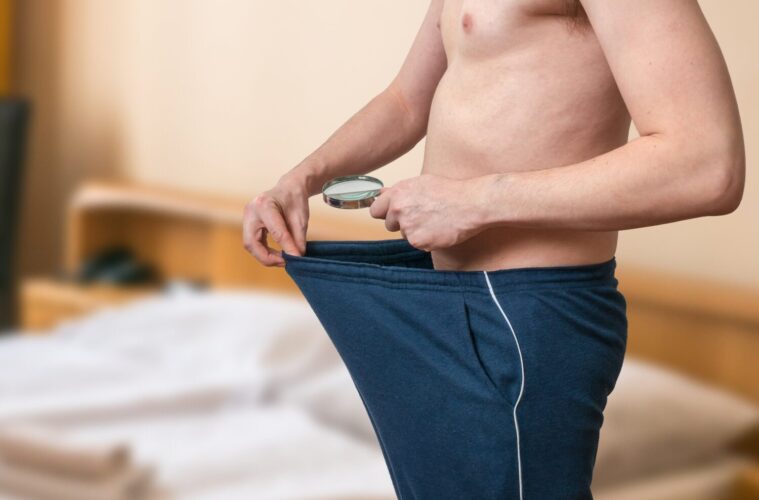That’s right — women aren’t the only ones who go through significant changes in their body as they get older. Turns out, menopause isn’t just for the ladies, but for the gents as well.
So if things aren’t working quite as well in the bedroom, male menopause could be the reason why.
What’s male menopause, aka andropause?
As men age, their testosterone levels drop by 1% every year. Some sources (National Health Service, UK) say that the testosterone decline in men starts somewhere between the ages 30 to 40, but others (MedBroadcast) believe that it starts at 20. Even then, it can’t be definitively concluded yet that andropause is caused by a decrease in one’s testosterone.
Unlike women, where menopause completely halts their ovulation cycle — which subsequently results in drastic changes in their hormones — hormonal changes in men are often gradual and the symptoms are faint. Therefore, male menopause can sometimes go unnoticed. Others believe that andropause is caused by some men suffering from a midlife crisis.
Another possible cause or catalyst for male menopause is their lifestyle. Those who drink too much alcohol, smoke tobacco, lack exercise, and deal with mental health conditions can be more at risk for male menopause than those who don’t engage in said behaviors.
Additionally, hypogonadism has similar symptoms to andropause; hypogonadism is the medical term for “decreased functional activity of the gonads,” according to the National Center for Biotechnology Information. Late-onset hypogonadism can also occur in men. When hypogonadism occurs later in life, the condition can be comparable to male menopause.
What are the signs and symptoms of male menopause?
The signs and symptoms of andropause are unique to each man suffering from it. Not all of them will deal with every symptom. The severity of the symptoms of male menopause also varies per person.
Lifestyle changes and mental health problems:
- Mood swings
- Irritability
- Insomnia
- Memory problems or poor concentration
- Low energy
- Low sex drive
- Stress
- Anxiety
- Depression
Physical symptoms:
- Weight gain (especially in the midsection area; aka the “dad bod”)
- Chest discomfort or swelling (aka “man boobs”)
- Decreased height
- Hot flashes
- Sweating more than usual
- Difficulties with having an erection
- Difficulties with maintaining an erection
- Erectile dysfunction
- Premature ejaculation
- Impotence
- Infertility
Is there a treatment for this?
In 2018, the Endocrine Society stated that low levels of testosterone can be treated with testosterone therapy for men who suffer from age-related male menopause. Also, in 2020, the American College of Physicians recommended the same type of treatment for men who deal with sexual dysfunction due to low testosterone levels.
However, testosterone therapy comes with risks — an individual who will undergo this treatment can be prone to cardiovascular diseases as well as stroke. Ultimately, treatment for andropause should be a mutual agreement between the patient and their doctor. Under no circumstance should anyone self-medicate! Anabolic steroids may also sound like an option (since they contain synthesized testosterone), but there are barely any studies to support this idea yet!
Moreover, male menopause can also affect a person’s mental health. But it’s important to know that midlife crisis is a common phenomenon. Furthermore, aging is natural and it should be embraced instead of being resented. At some point, almost everyone will question their careers, possessions, achievements, and life purpose. However, if these things bother you — to the point that it affects your day-to-day life — you can seek a physician that specializes in mental health.
There are also health supplements that claim to help with male menopause symptoms. Generally, health supplements don’t seem harmful to people. Still, it’s best to ask your doctor if you plan on taking some.
Overall
Male menopause seems like a real phenomenon. Many men suffer from this condition — and even experts in the medical world recognize this. The cause of male andropause is believed to be the gradual decrease of testosterone in men. When this happens, some men can suffer from various andropause symptoms — ranging from mood swings to erection problems. Fortunately, there’s already a recommended treatment for male menopause. Talk to your doctor!
Advertising disclosure: We may receive compensation for some of the links in our stories. Thank you for supporting LA Weekly and our advertisers.

